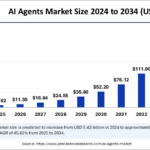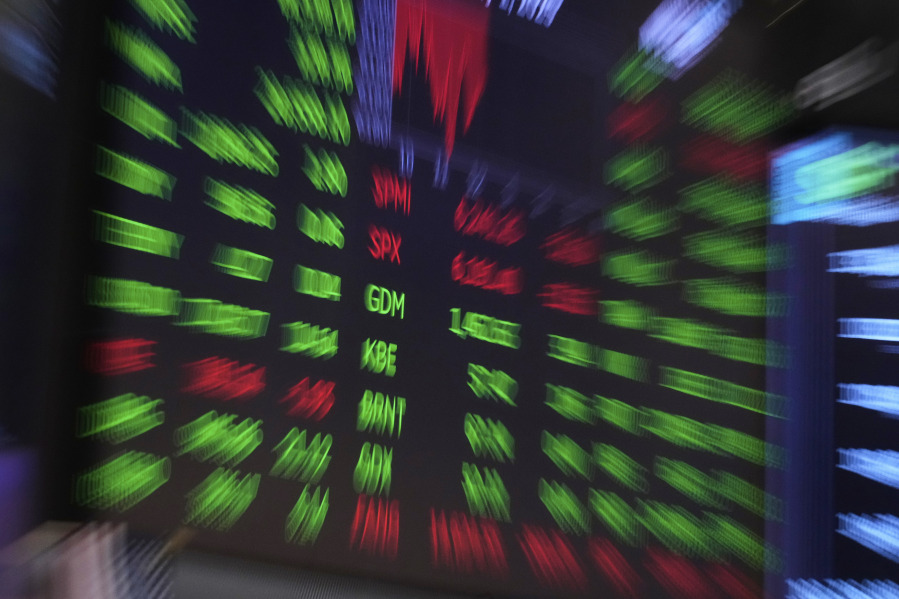NEW YORK (AP) — U.S. stocks exhibited a lackluster performance on Wednesday, as Wall Street’s recent record-breaking rally showed signs of slowing ahead of a crucial jobs report due Thursday. The S&P 500 inched up by 0.2% during midday trading, following its first loss after achieving all-time highs on consecutive days. Meanwhile, the Dow Jones Industrial Average saw a modest increase of 13 points, or less than 0.1%, by 11:30 a.m. Eastern time, and the Nasdaq composite rose by 0.7%.
In the bond market, Treasury yields presented a mixed picture as investors braced for the upcoming report, which will reveal the number of jobs created and lost by U.S. employers last month. The consensus expectation is for a net increase in jobs, albeit at a slower pace than in May. However, a surprisingly weak report released Wednesday morning has raised concerns that Thursday’s figures might disappoint.
Market Reactions and Economic Indicators
The ADP National Employment Report indicated that private sector employers cut 33,000 jobs in the previous month, contrary to economists’ forecasts of 115,000 job gains. Nela Richardson, chief economist at ADP, noted,
“Though layoffs continue to be rare, a hesitancy to hire and a reluctance to replace departing workers led to job losses last month.”
While the ADP report is not always a reliable predictor of the government’s more comprehensive jobs data, it has nonetheless sparked apprehension among investors.
Concerns over President Donald Trump’s proposed tariffs have also contributed to the uncertainty. Although many of these tariffs are currently on hold, they are set to be implemented in about a week. Depending on their severity, these tariffs could negatively impact the economy and exacerbate inflation. Even without full implementation, the ongoing uncertainty surrounding trade policies may have already inflicted damage.
Broader Economic Implications
Other factors potentially affecting the job market include the U.S. government’s decision to terminate protected status for 350,000 Venezuelans, which could lead to deportations. Goldman Sachs economist David Mericle estimates that this policy change alone might reduce payrolls by 25,000 jobs, contributing to a weaker job market forecast than many of his peers.
In the bond market, the yield on the 10-year Treasury note increased to 4.29% from 4.26%, while the two-year Treasury yield, more sensitive to Federal Reserve rate expectations, edged down to 3.77% from 3.78%. An unexpected downturn in the job market could prompt the Fed to consider cutting interest rates to stimulate economic growth. So far, the Fed has opted to observe the impact of Trump’s tariffs on the economy and inflation before making further rate cuts. Meanwhile, President Trump has been vocally advocating for immediate rate reductions.
Corporate Movements and Global Markets
On Wall Street, Tesla shares climbed 4.3% after the company reported delivering nearly 374,000 Model 3 and Model Y vehicles last quarter, surpassing analyst expectations despite a 13% decline in overall sales from the previous year. Concerns have been mounting that Tesla’s potential customers might be deterred by CEO Elon Musk’s political activities.
Constellation Brands saw a 4.4% increase in its stock, despite reporting lower-than-expected quarterly profits. The company, known for its Modelo beer and Robert Mondavi wine, attributed the slowdown in job growth in construction and other high-calorie sectors to reduced demand for its products. Nonetheless, it maintained its financial forecasts for the upcoming year.
Conversely, Centene’s stock plummeted 38.7% after the healthcare company withdrew its profit forecasts for the year, citing preliminary data indicating worsening sickness trends in several states where it operates.
Internationally, stock markets presented a mixed picture as the July 9 deadline approaches for President Trump and other nations to finalize trade agreements before the tariffs are reactivated. France’s CAC 40 rose by 1.1%, and Hong Kong’s Hang Seng gained 0.6%. However, Japan’s Nikkei 225 fell by 0.6%, and South Korea’s Kospi dropped by 0.5%.
Looking Ahead
The upcoming jobs report is poised to play a critical role in shaping market sentiment and influencing Federal Reserve policy decisions. Investors and policymakers alike will be closely monitoring the data for insights into the health of the U.S. labor market and the broader economy. As the deadline for potential tariffs looms, the interplay between trade policies and economic indicators remains a key area of focus.
With the stakes high, Thursday’s report could either reinforce or challenge current economic narratives, potentially setting the tone for future market movements and policy adjustments.
About The Author
 Trump Announces New US-Vietnam Trade Deal Amid Global Economic Shifts
Trump Announces New US-Vietnam Trade Deal Amid Global Economic Shifts AI Agents Market Poised for $236 Billion Growth by 2034 Driven by ML and NLP
AI Agents Market Poised for $236 Billion Growth by 2034 Driven by ML and NLP U.S. Oil Prices Drop as Crude and Gasoline Inventories Surge
U.S. Oil Prices Drop as Crude and Gasoline Inventories Surge Trailways Ranks Among Top 3 U.S. Bus Services in USA Today Awards
Trailways Ranks Among Top 3 U.S. Bus Services in USA Today Awards Commercial Banking Transforms with Data-Driven Innovations
Commercial Banking Transforms with Data-Driven Innovations